Leadership
Due to the age of publications, certain works listed are no longer in print. Print-on-demand services are available for some titles upon request.
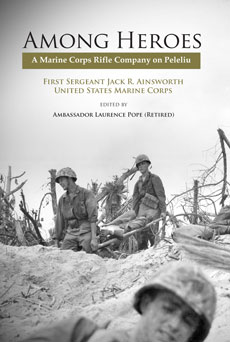 Among Heroes
Among Heroes
A Marine Corps Rifle Company on Peleliu
First Sergeant Jack R. Ainsworth
Few Americans know of the battle of Peleliu. It never received the iconic recognition of the other amphibious assaults in the Pacific during World War II such as Iwo Jima or Okinawa. At the time of the invasion in 1944, only a handful of journalists even covered the operation because it was expected to be a short action with a quick American victory. It became the bloodiest battle in Marine Corps history given the number of casualties compared to the number of troops involved. It lasted far longer than senior planners had estimated and the tenacious defense by the Japanese took a tremendous toll on the Marines’ headlong assaults on their well-fortified positions.
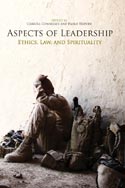 Aspects of Leadership
Aspects of Leadership
Ethics, Law, and Spirituality
By Carroll Connelley and Paolo Tripodi
Aspects of Leadership is a new book edited by Lieutenant Colonel Carroll Connelley and Dr. Paolo Tripodi, the Ethics Branch head, and comprised of essays by a group of 20 leadership and ethics scholars and practitioners. The Lejeune Leadership Institute Ethics Branch, Marine Corps University, provides current and relevant scholarly research and instruction on ethics and moral leadership and the law of war. This collection of essays provides timely and insightful views on current leadership behavior and ethical concerns that men and women of the armed forces face in the demanding, complex, and prolonged decade of armed conflict. This book offers significant and relevant perspectives on the historical underpinnings as well as from recent deployments and operations that affect ethics and law of war on individual Marines, units, and the populations engaged in conflict.
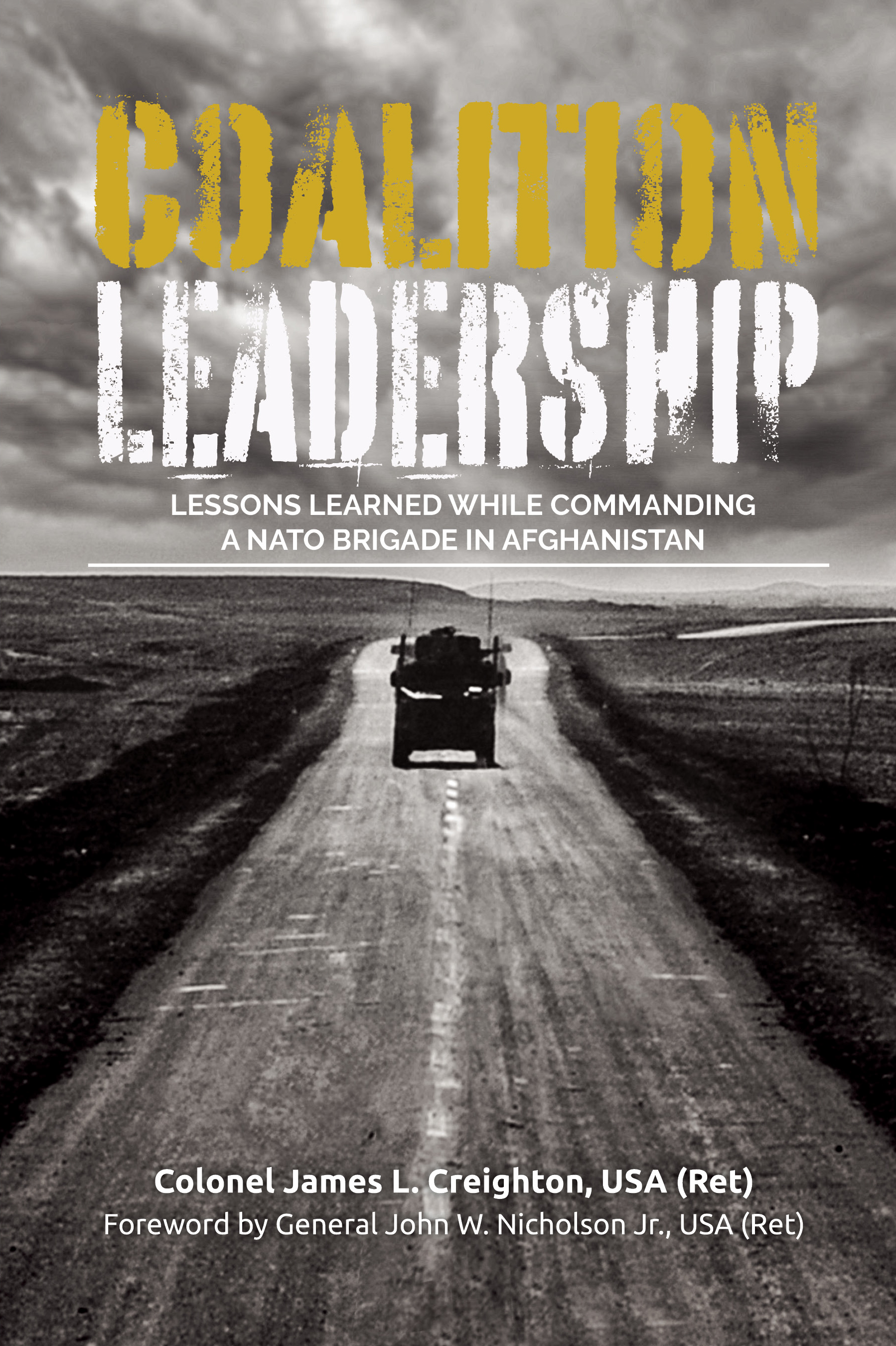 Coalition Leadership
Coalition Leadership
Lessons Learned while Commanding a NATO Brigade in Afghanistan
By Colonel James L. Creighton, USA (Ret)
Colonel Creighton’s command provides an excellent case study in the leadership of coalitions, which are critical to the United States now and in the future. The U.S. military’s mission in Afghanistan enjoyed significant legitimacy because it operated within a coalition that was based on international mandates from the United Nations and the North Atlantic Treaty Organization (NATO). These mandates enabled unity of purpose among the more than 50 nations that joined the Coalition and sustained that unity for more than 20 years.
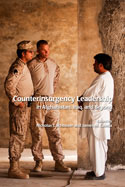 Counterinsurgency Leadership in Afghanistan, Iraq, and Beyond
Counterinsurgency Leadership in Afghanistan, Iraq, and Beyond
By Nicholas J. Schlosser and James M. Caiella
This volume collects the works presented at the 2009 symposium “Counterinsurgency Leadership in Afghanistan, Iraq, and Beyond.” This one-day colloquium was cohosted by the Marine Corps University and the Marine Corps University Foundation and held at the National Press Club in Washington, DC.
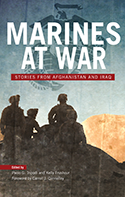 Marines at War
Marines at War
Stories from Afghanistan and Iraq
Edited by Paolo G. Tripodi and Kelly Frushour
This book brings together the short stories of 10 Marines and a sailor who served in either Afghanistan or Iraq, some in both. The authors reflect on their time in combat, focusing on preparation, particular moments, and the lessons or conclusions drawn from their experiences. While every servicemember has a different story, and despite these remembrances being very personal, this collection represents and provides insight into the ordinary experiences of fellow Americans serving during an extraordinary set of circumstances.
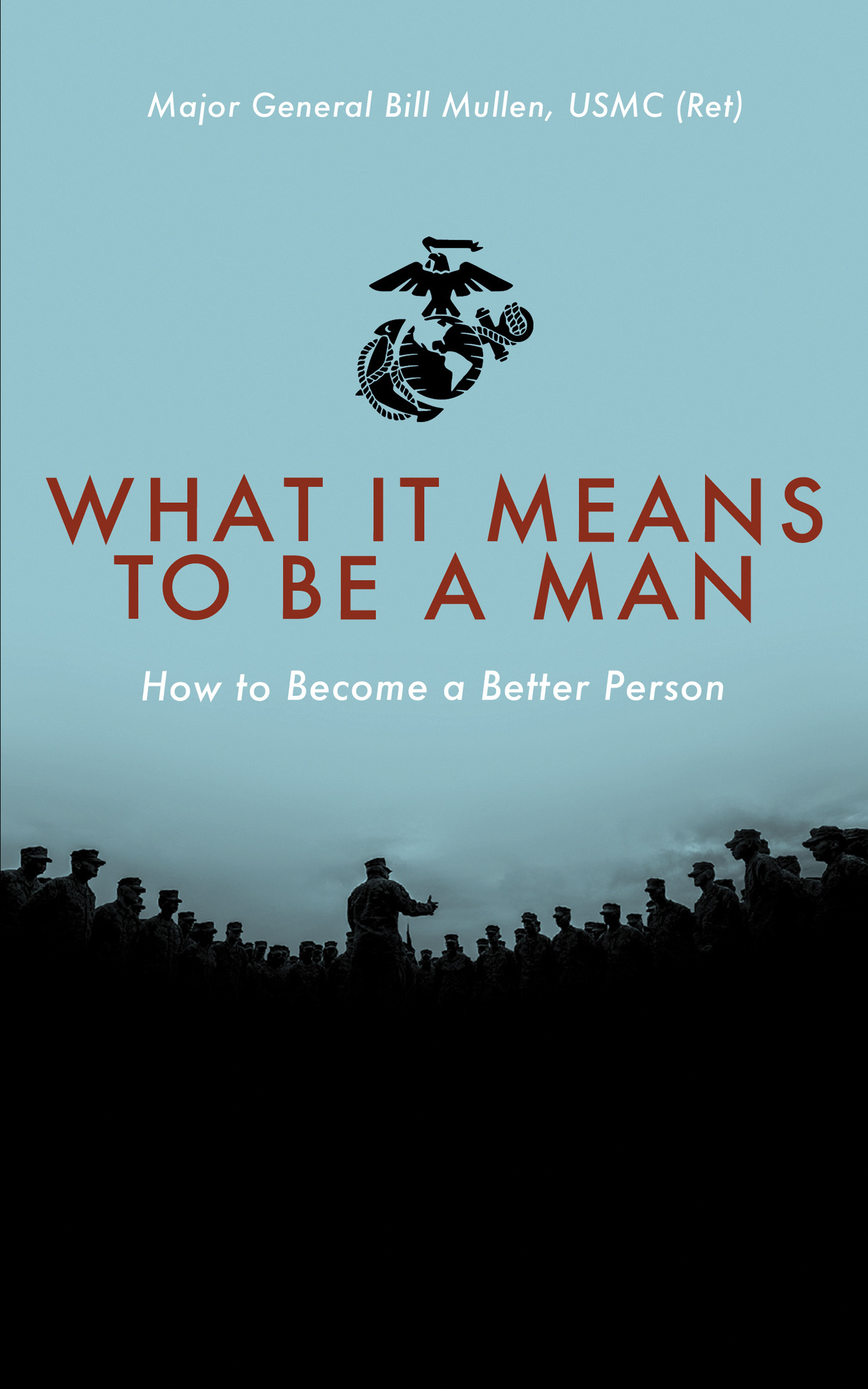 What It Means to Be a Man
What It Means to Be a Man
How to Become a Better Person
by Major General Bill Mullen (Ret)
We all have flaws because, as humans, we are all inherently fallible. If we can focus on becoming better people in life, it will likely help mitigate that fallibility. What It Means to Be a Man focuses on the concept that if all young Marines internalize the words and thoughts here, and use them to not only be better Marines but more importantly, better people, then we can be a much better Service overall. The U.S. Marine Corps and the American people have invested so much time, effort, and money into them that they are more than worth the effort to make them better people now but also when they take off the uniform and return to civilian society.